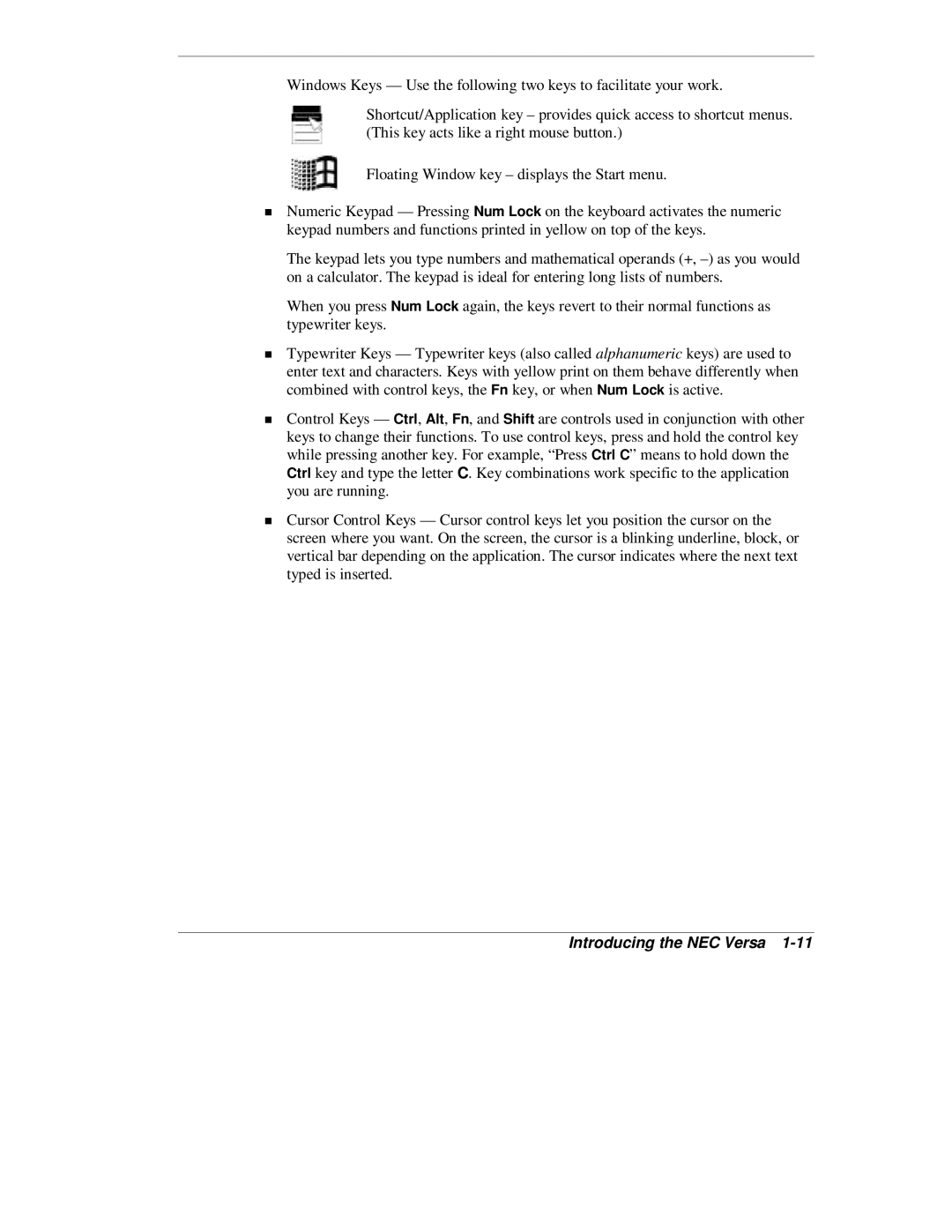
Windows Keys — Use the following two keys to facilitate your work.
Shortcut/Application key – provides quick access to shortcut menus. (This key acts like a right mouse button.)
T | Floating Window key – displays the Start menu. |
Numeric Keypad — Pressing Num Lock on the keyboard activates the numeric keypad numbers and functions printed in yellow on top of the keys.
The keypad lets you type numbers and mathematical operands (+,
When you press Num Lock again, the keys revert to their normal functions as typewriter keys.
Typewriter Keys — Typewriter keys (also called alphanumeric keys) are used to enter text and characters. Keys with yellow print on them behave differently when combined with control keys, the Fn key, or when Num Lock is active.
Control Keys — Ctrl, Alt, Fn, and Shift are controls used in conjunction with other keys to change their functions. To use control keys, press and hold the control key while pressing another key. For example, “Press Ctrl C” means to hold down the Ctrl key and type the letter C. Key combinations work specific to the application you are running.
Cursor Control Keys — Cursor control keys let you position the cursor on the screen where you want. On the screen, the cursor is a blinking underline, block, or vertical bar depending on the application. The cursor indicates where the next text typed is inserted.
